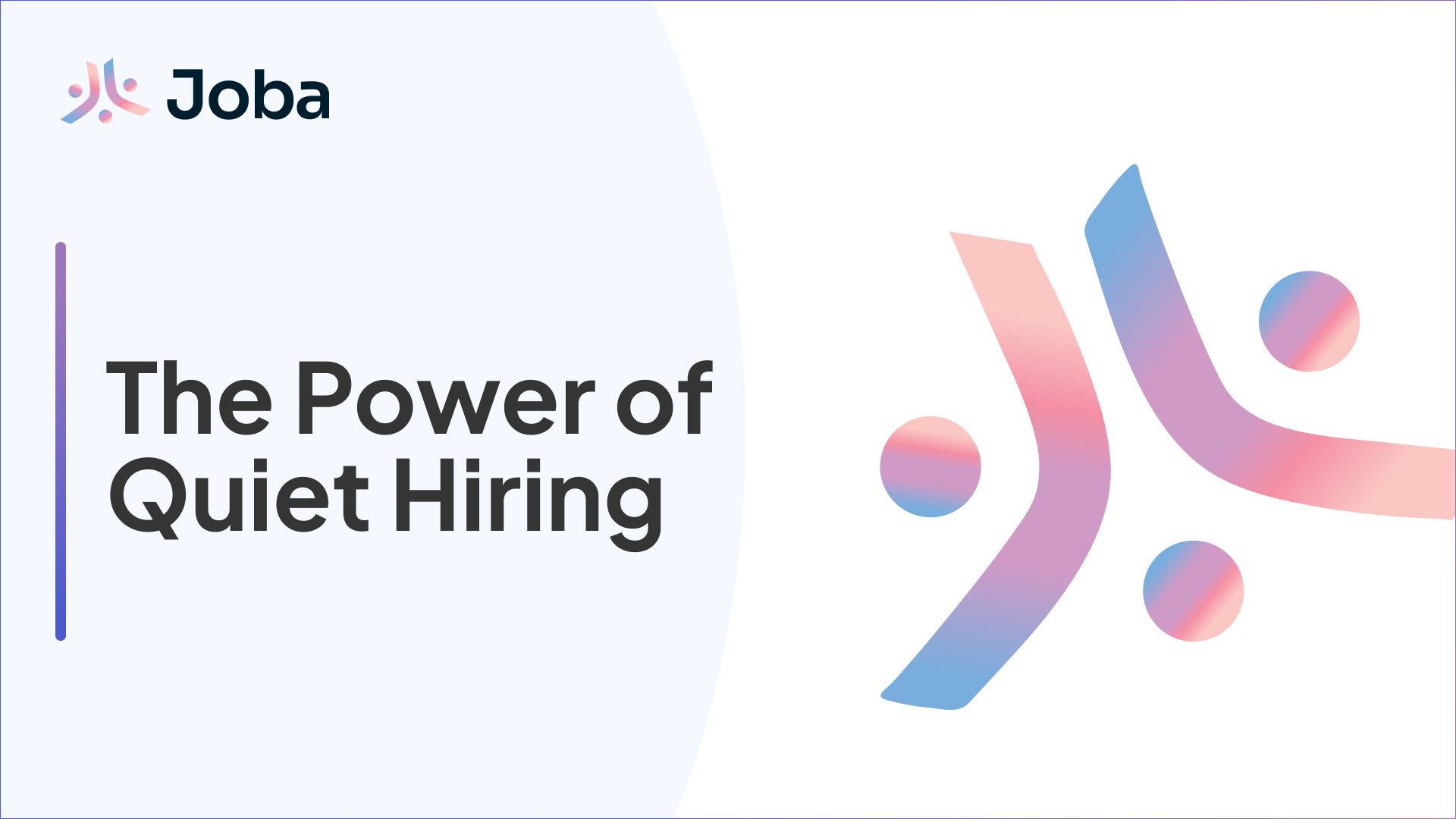The Power of Quiet Hiring: Unveiling the Hidden Talent Pool

In the fast-paced and competitive world of recruitment and talent acquisition, there's often a prevailing belief that the loudest candidates are the ones worth hiring. After all, they are the ones who confidently market their skills, shout about their achievements, and dazzle with their extroverted personalities during interviews. But is this approach to hiring truly the most effective way to identify top talent? In this comprehensive article, we'll explore the concept of "quiet hiring" in depth, and why it's not just an alternative but a critical strategy for organizations looking to tap into the hidden talent pool that often goes unnoticed.
Understanding the Traditional Hiring Process
Before delving into the power of quiet hiring, let's thoroughly examine the traditional hiring process that has dominated the corporate world for decades. Typically, this process involves posting job openings, reviewing resumes, conducting interviews, checking references, and ultimately making a hiring decision based on a candidate's qualifications and performance during interviews.
While this approach has its merits, it often tends to favor extroverted individuals who excel in interview settings. These candidates may be charismatic, quick on their feet, and excellent at selling themselves, but does this necessarily mean they are the best fit for the job? Not always.
The Pitfalls of Ignoring Introverted Candidates
It's crucial to recognize that introverted candidates bring a unique set of strengths to the table that can be easily overlooked in a traditional hiring process. Here are some common misconceptions about introverted individuals:
1. Introverts Lack Confidence
One of the most significant misconceptions is that introverts lack confidence. In reality, introverts often possess deep self-assurance and excel at tasks that require concentration and attention to detail. They may not shout about their abilities, but their confidence shines through in their work.
2. Introverts Are Poor Communicators
Contrary to popular belief, introverts are not necessarily poor communicators. While they may prefer written communication or one-on-one interactions over large group discussions, this doesn't make them ineffective communicators. Introverts often excel in conveying complex ideas with precision.
3. Introverts Don't Make Great Leaders
Another common misconception is that introverts can't be effective leaders. In truth, introverted leaders often excel in leadership roles. They tend to be excellent listeners, empathetic, and thoughtful decision-makers. Their leadership style may be quieter, but it's equally impactful.
The Benefits of Quiet Hiring
Now that we've dispelled some myths about introverts, let's delve even deeper into the advantages of embracing quiet hiring in your recruitment strategy:
1. Diverse Perspectives
By actively seeking introverted candidates, you introduce a greater level of diversity into your workforce. Introverts often approach problem-solving differently and can offer fresh and innovative perspectives that might not be considered by their extroverted counterparts. This diversity in thought can be a catalyst for creativity and growth within your organization.
2. Better Team Dynamics
A balanced team that includes both introverted and extroverted individuals can lead to vastly improved team dynamics. Introverts can help temper the enthusiasm of extroverts and provide a more thoughtful and measured approach to decision-making. The combination of these contrasting styles can lead to well-rounded and effective teams.
3. Reduced Turnover
Introverted individuals are more likely to be satisfied in roles that align with their natural strengths and preferences. This satisfaction often translates into reduced turnover rates, saving your company time, resources, and the costs associated with continuous recruitment and onboarding. Additionally, their dedication and reliability can lead to greater long-term stability within your organization.
Implementing Quiet Hiring Practices
Now that we've established the value of quiet hiring, let's explore practical strategies to incorporate it into your recruitment process:
1. Adjust Interview Techniques
During interviews, create an environment where introverted candidates can truly shine. Offer them the opportunity to showcase their skills through written assignments, portfolio presentations, or one-on-one discussions. These alternative methods allow introverts to express themselves effectively and demonstrate their qualifications beyond the confines of traditional interviews.
2. Focus on Skills and Experience
Place a greater emphasis on a candidate's skills, qualifications, and relevant experience rather than their interview performance. Consider using skills assessments, case studies, or job-related challenges to evaluate candidates. This shift in focus ensures that you're hiring based on actual capabilities rather than charismatic interview performances.
3. Foster an Inclusive Culture
Promote and nurture an inclusive company culture that values diversity in all its forms. Encourage introverted employees to share their ideas and opinions, and provide platforms for quieter voices to be heard. Create mentorship programs and networking opportunities that allow introverts to build their professional relationships in a comfortable and supportive environment.
In the quest for top talent, it's crucial not to overlook the hidden gem that is the introverted candidate. By embracing quiet hiring practices, you can tap into a vast talent pool that brings diversity, unique perspectives, and stability to your organization. In doing so, you'll not only make better hiring decisions but also create a workplace that values the strengths of all its employees, introverts and extroverts alike. So, remember, the next time you're evaluating candidates, the power of quiet hiring may hold the key to unlocking your company's full potential and ensuring long-term success in today's competitive job market.
Take the first step in revolutionizing your hiring process. Join Joba Network now and uncover your hidden talent pool!
Frequently asked questions
No, some industries like health care and manufacturing require physical presence. But many fields, especially in tech and marketing, are well-suited for remote work.
Not necessarily. Many remote jobs offer competitive salaries and benefits.
There are various job boards dedicated to remote work, such as We Work Remotely and Remote OK.
The key is to set a routine, create a dedicated workspace, and use productivity tools to stay on track.
Tools like Slack, Zoom, and Asana are invaluable for remote work, aiding in communication and project management.




